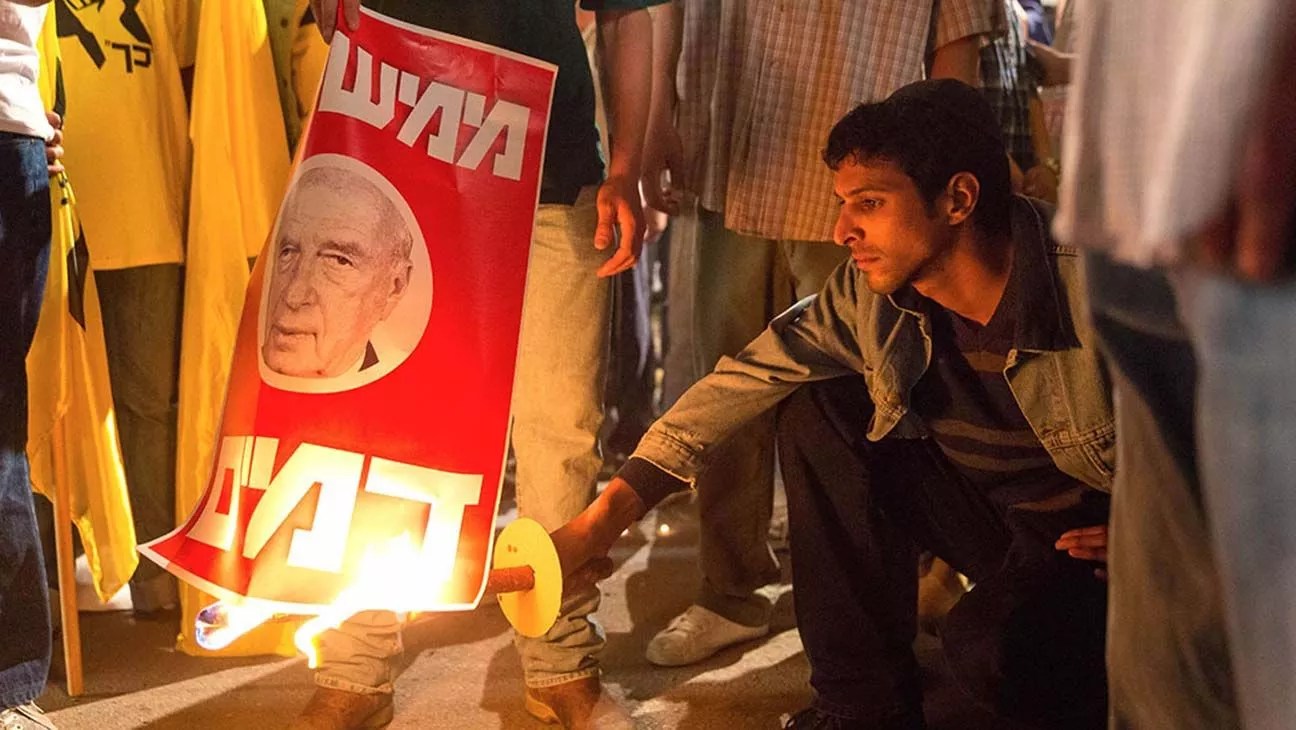
Courtesy of Greenwich Entertainment

Audio By Carbonatix
A frustrated young man who lives with his parents and feels spit upon by the powers that be gains notoriety by assassinating a famous person: It might sound like a plot summary for 2019’s Joker, but it also describes a story ripped straight from the headlines and depicted onscreen in the Hebrew-language film Incitement.
The gripping feature, which will screen twice next week at the Miami Jewish Film Festival, follows Yigal Amir in the months before he assassinated Israeli Prime Minister Yitzhak Rabin. The movie makes for a harrowing two hours; regardless of whether you know the history of the 1995 political murder, you’ll hope and pray the protagonist ultimately won’t pull the trigger. Yehuda Nahari Halevi’s portrayal of Amir is charismatic and sympathetic enough that audiences have found themselves rooting for him despite his status as the ostensible villain of the film.
Incitement director Yaron Zilberman was aware some viewers might interpret his film’s depiction of Amir as a glamorization of a murderer.
“I took that risk,” Zilberman tells New Times. “We learned Amir had two attractive girlfriends; he led hundreds of students on Shabbat retreats. He was charismatic and attractive – I had to portray him as that. I went with what is true rather than to have an agenda. It was important to be real. You can feel sorry for him; you can understand his troubles. He is a human being, [and] to treat him otherwise puts us in a worse situation.”
This year, make your gift count –
Invest in local news that matters.
Our work is funded by readers like you who make voluntary gifts because they value our work and want to see it continue. Make a contribution today to help us reach our $30,000 goal!
Amir appears in nearly every frame of the movie, save the news coverage of the Israeli-Palestinian conflict he watches obsessively. We follow him through over-the-shoulder tracking shots and closeups from uncomfortable angles to get inside of the zealotry and intolerance that inspired his violence.
“The title is a hint to what I’m going against,” Zilberman says. “It’s about the personal responsibility of society – parents, teachers, religious leaders, politicians – about what you say in public.”
The film has received accolades from pundits on both sides of the political spectrum in Israel and was even selected as the country’s entry for Best International Film for the Oscars. However, with the acclaim has come criticism.
“The Israeli minister of culture went hard on the movie – that was to be expected,” Zilberman says. “But the box office has been high for a political drama. Young people [who were not alive] for the assassination are learning about it in the cinema.”
The director was in Tel Aviv and only a ten-minute drive from the site where Rabin was gunned down at the end of a rally supporting the Israeli-Palestinian peace process. “I was at a bar mitzvah,” the 53-year-old Zilberman recounts. “When we heard about Rabin, we all left. We were on our way to the square. When he died, everyone stopped their cars in the middle of the highway.”
The hatred and rhetoric that fueled Amir’s assassination of Rabin has long bothered Zilberman. He spent six years developing the project with co-writers Ron Leshem and Yair Hizmi and hired researchers to interview the now-49-year-old Amir in prison as well as his family for hundreds of hours.
“We watched hundreds of hours of news footage,” Zilberman says. “We read the national inquiry, the trial transcript, to ask, Why did he do it?‘”
Incitement is the closest Zilberman has come to reaching a conclusive answer.
Incitement. 8:30 p.m. Monday, January 13, at Miami Theater Center, 9806 NE Second Ave., Miami Shores; and 8:30 p.m. Tuesday, January 14, at Regal Cinemas South Beach, 1120 Lincoln Rd., Miami Beach. Tickets cost $14 to $15 via miamijewishfilmfestival.org.